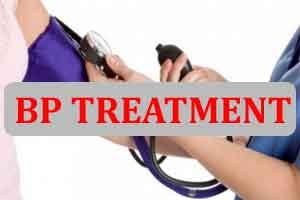- Home
- Editorial
- News
- Practice Guidelines
- Anesthesiology Guidelines
- Cancer Guidelines
- Cardiac Sciences Guidelines
- Critical Care Guidelines
- Dentistry Guidelines
- Dermatology Guidelines
- Diabetes and Endo Guidelines
- Diagnostics Guidelines
- ENT Guidelines
- Featured Practice Guidelines
- Gastroenterology Guidelines
- Geriatrics Guidelines
- Medicine Guidelines
- Nephrology Guidelines
- Neurosciences Guidelines
- Obs and Gynae Guidelines
- Ophthalmology Guidelines
- Orthopaedics Guidelines
- Paediatrics Guidelines
- Psychiatry Guidelines
- Pulmonology Guidelines
- Radiology Guidelines
- Surgery Guidelines
- Urology Guidelines
Spirulina- New agent for treating high BP

Classified as blue Algae and termed as "superfood", Spirulina may be new agent for treatment of high BP.Researchers at the Vascular Physiopathology Laboratory of the I.R.C.C.S. Neuromed in Pozzilli (Italy) have found that one of its extracts may counteract arterial hypertension by dilating blood vessels.The study has been published in the journal Hypertension.
Spirulina is known as Arthrospira platensis scientifically and is a cyanobacterium, a bacterium capable of photosynthesis. It is tipped to have host of possible beneficial properties, albeit its mechanism of action is still subjected to investigation. In addition to this, it was supposedly used as a food by the Aztecs.
One of the isolated peptides, named SP6, has been identified for the first time. Administered to isolated blood vessels in the lab, it showed vasodilatory action, a potentially antihypertensive effect. This led researchers to administer SP6 to hypertensive animals, resulting in an effective lowering of blood pressure.
"Our research - says Albino Carrizzo, first author of the paper - started by conducting simulated gastrointestinal digestion on the raw extract of spirulina. In other words, we reproduced what happens in the human gut after ingesting the substance. This way we have been able to isolate the peptides that would be absorbed by our body ".
Neuromed researchers, working in collaboration with University of Salerno, Sapienza University of Rome and Federico II University of Naples, isolated from the spirulina extract a peptide (a molecule composed of amino acids, such as proteins, but smaller) capable of dilating arteries, thus leading to antihypertensive action.
"We know - says Carmine Vecchione, Professor at the University of Salerno and head of Vascular Physiopathology Laboratory at Neuromed Institute - that hypertensive patients often have a defect in the natural processes that, by the action of nitric oxide, regulate endothelium (the inner wall of blood vessels). The peptide we isolated in spirulina extract acts positively on this mechanism. Of course, further researches will be necessary, but we think that SP6 could be a natural adjuvant to common pharmacological therapies in order to improve endothelial function and, consequently, combat hypertension".

Disclaimer: This site is primarily intended for healthcare professionals. Any content/information on this website does not replace the advice of medical and/or health professionals and should not be construed as medical/diagnostic advice/endorsement or prescription. Use of this site is subject to our terms of use, privacy policy, advertisement policy. © 2020 Minerva Medical Treatment Pvt Ltd